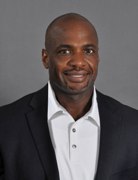
Earlier this week I had a very good conversation with some of my industry peers, including some Sedgwick colleagues and some people who work for other organizations. It was exciting to hear they shared my commitment to doing more to make a difference in our industry. I am optimistic there are many of you reading this right now who also share the same desire to make a difference through the work you do.
I think, at the end of the day, we all have an interest in seeing the claims management system work as intended. However, the system is sometimes out of balance when employees are not compensated adequately for their injuries, reimbursement to physicians is insufficient, or they are not encouraged to concentrate on delivering the best care to get employees back to work and full functionality. Imbalance also occurs when some stakeholders exploit the system and costs spiral out of control.
The claims profession is not always viewed as a place where people are interested in something besides closing a claim file. The truth is it's a great profession to make a difference. Every day we intersect with people whose lives have been changed and who need us.
How can you make a difference? It can be as simple as an examiner having a conversation with a manager or client about a negative trend they are seeing. It may mean being educated and influencing the laws that shape our industry. It should mean getting involved with an organization like Kids' Chance that helps children who have had a family member severely injured or killed on the job.
I've been inspired by clients and other employers who have banded together to influence policymakers to change laws when the system is not working as intended. The results of their efforts in Oklahoma, Illinois, California, or even at the federal level with the Smart Act have been nothing short of spectacular. Employer groups are using their collective energy to pursue positive change for the industry. While it is true that employers have a very powerful voice as states compete for their business, it should not stop others in the industry from stepping up and providing assistance – possibly data analysis, perspectives from successful efforts, forums for discussions, or funding – to ensure the greater probability that positive change is made where necessary.
I urge you to make 2014 the year you choose to make a difference. Where should the industry focus its efforts? As the year goes along I will be reporting on the various places my colleagues at Sedgwick and I are working to make a difference. What will you do this year to change or improve the profession we have chosen?
Let's start a discussion on this topic. Post your comments below and share your ideas. Who knows? You may inspire someone else to take action. I leave you with this quote:
"One is not born into the world to do everything but to do something." ― Henry David Thoreau
Darrell Brown, Chief Performance Officer